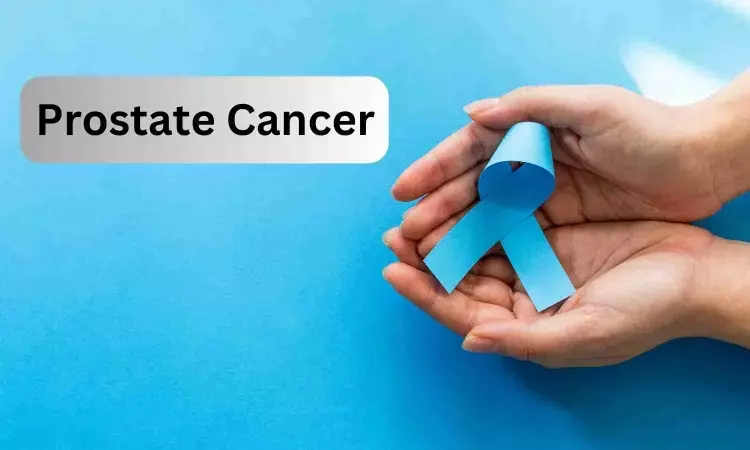- Home
- Medical news & Guidelines
- Anesthesiology
- Cardiology and CTVS
- Critical Care
- Dentistry
- Dermatology
- Diabetes and Endocrinology
- ENT
- Gastroenterology
- Medicine
- Nephrology
- Neurology
- Obstretics-Gynaecology
- Oncology
- Ophthalmology
- Orthopaedics
- Pediatrics-Neonatology
- Psychiatry
- Pulmonology
- Radiology
- Surgery
- Urology
- Laboratory Medicine
- Diet
- Nursing
- Paramedical
- Physiotherapy
- Health news
- Fact Check
- Bone Health Fact Check
- Brain Health Fact Check
- Cancer Related Fact Check
- Child Care Fact Check
- Dental and oral health fact check
- Diabetes and metabolic health fact check
- Diet and Nutrition Fact Check
- Eye and ENT Care Fact Check
- Fitness fact check
- Gut health fact check
- Heart health fact check
- Kidney health fact check
- Medical education fact check
- Men's health fact check
- Respiratory fact check
- Skin and hair care fact check
- Vaccine and Immunization fact check
- Women's health fact check
- AYUSH
- State News
- Andaman and Nicobar Islands
- Andhra Pradesh
- Arunachal Pradesh
- Assam
- Bihar
- Chandigarh
- Chattisgarh
- Dadra and Nagar Haveli
- Daman and Diu
- Delhi
- Goa
- Gujarat
- Haryana
- Himachal Pradesh
- Jammu & Kashmir
- Jharkhand
- Karnataka
- Kerala
- Ladakh
- Lakshadweep
- Madhya Pradesh
- Maharashtra
- Manipur
- Meghalaya
- Mizoram
- Nagaland
- Odisha
- Puducherry
- Punjab
- Rajasthan
- Sikkim
- Tamil Nadu
- Telangana
- Tripura
- Uttar Pradesh
- Uttrakhand
- West Bengal
- Medical Education
- Industry
Nanoparticle therapy offers new hope for prostate cancer patients, suggests research

Prostate cancer is the second leading cause of cancer death among American men.
A ground-breaking study, conducted by researchers from the University of Virginia, Mount Sinai, the University of Michigan, the University of Texas and others, has demonstrated the clinical success of a new nanoparticle-based, laser-guided therapy for prostate cancer treatment.
The study, which involved 44 men with localized prostate cancer, used gold nanoshellss in combination with magnetic resonance imaging (MRI) and ultrasound fusion-an advanced technique that enhances MRI data-to precisely target and eliminate cancerous prostate tissue.
Gold nanoshells are tiny particles, thousands of times smaller than a human hair, that can be engineered to strongly absorb specific wavelengths of light and generate heat. In this case, gold nanoshells were designed to accumulate in the tumors, allowing for highly targeted near-infrared laser treatment that heats and destroys the cancerous tissue while sparing surrounding healthy cells.
This innovative method, called nanoparticle-directed focal photothermal ablation, successfully eliminated cancerous cells in 73% of patients after 12 months, as confirmed by negative biopsies in the treated areas. Importantly, the treatment was able to achieve these results while preserving key functions, including urinary and sexual health, and without observed side effects, marking a significant improvement in the quality of life for patients.
"Our findings represent a major step forward in prostate cancer treatment. This therapy not only effectively eliminates cancerous cells but also preserves key quality-of-life factors, which is a huge win for patients," said Jennifer L. West, Ph.D., Dean of the School of Engineering and Applied Science at the University of Virginia, an author on this paper and inventor of this technology.
"This study showcases the strength of interdisciplinary collaboration,” West continued. “Together, we’re pushing the boundaries of what's possible in cancer treatment, and it's exciting to be at the forefront of this innovation."
Reference:
Canfield SE, George AK, Jue JS, Lewis SC, Davenport MS, Tammisetti VS, et al. A Multi-Institutional Study of Magnetic Resonance/Ultrasound Fusion–Guided Nanoparticle-Directed Focal Therapy for Prostate Ablation. Journal of Urology [Internet]. [cited 2024 Oct 16];0(0). Available from: https://doi.org/10.1097/JU.0000000000004222
Dr Kamal Kant Kohli-MBBS, DTCD- a chest specialist with more than 30 years of practice and a flair for writing clinical articles, Dr Kamal Kant Kohli joined Medical Dialogues as a Chief Editor of Medical News. Besides writing articles, as an editor, he proofreads and verifies all the medical content published on Medical Dialogues including those coming from journals, studies,medical conferences,guidelines etc. Email: drkohli@medicaldialogues.in. Contact no. 011-43720751


